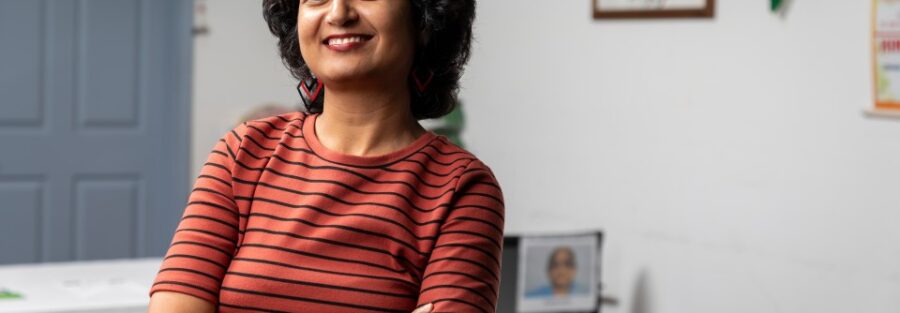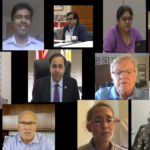Seniors have been isolated during the pandemic, putting their physical and mental health at risk. But some community groups have found a way to lend a hand.
By Edie Rubinowitz
The participants all know each other from an adult day program run by Universal Asian Metro Services that they used to attend in person in Vernon Hills. But when COVID-19 hit hard in March, the center had to shut down. The seniors missed seeing each other daily and said they started to feel adrift. Namita Mathur, coordinator of the adult day services program, said she and the staff had to pivot quickly and were able to start offering classes to their seniors online in April. Participant Pravesh Kulshreshtha credits Mathur — and technology — with keeping the community together.
“Zoom is a very big boon to us,” Kulshreshtha said. “We were otherwise passing our days in our houses without any connection to each other.”
While Bingocize might sound lighthearted, what these seniors are doing could be key to physical and mental health. Experts say isolation and loneliness can be particularly hazardous to the elderly.
A 2020 report by the National Academies of Sciences, Engineering, and Medicine, “Social Isolation and Loneliness in Older Adults: Opportunities for the Health Care System,” lays out some alarming statistics:
Isolated and lonely adults have a
- 50% higher chance of developing dementia
- 29% higher chance of coronary heart disease
- 32% higher chance of strokes
- They are also at higher risk of hospitalization.
Rosann Corcoran manages counseling services for the Council For Jewish Elderly. Shortly after Illinois’ stay-at-home order, the organization started teletherapy, now covered by Medicare and insurance. Corcoran said they were able to keep treating most of their clients.
“We’re really concerned about identifying [a] more passive death wish, more of the laissez-faire attitude — if I have to live this way, I don’t know how long I want to go on,” she said.
Corcoran says seniors who are largely in isolation during the coronavirus have to fight against a mental, cognitive, and physical decline.
“Many of our older adults are not getting out to physical therapy, not getting out to the doctor, not going out for coffee with friends, not going to the senior center,” Corcoran said. “They’re just walking and moving less.”



